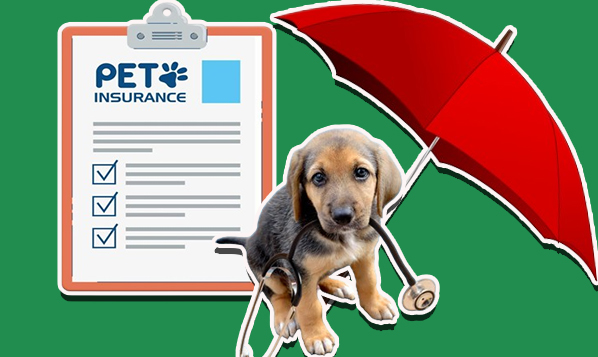A new puppy can bring excitement. Puppies may be very expensive to care for, despite their sweetness and cuteness. However, should you get your puppy covered by pet insurance since they are already healthy? In the first year alone, puppy parents often spend between $450 and $900 on their dog’s medical expenses.

Moreover, preventive care costs include not just immunizations, spaying, and neutering, but also other associated costs. It’s likely that at some point your new puppy will eat something they shouldn’t or contract an illness like kennel cough. In this article, we will help you clear your curiosity on if you should get pet insurance for your puppy and other details related to it.
Should I Get Pet Insurance for My Puppy
Yes, puppy owners may consider getting pet insurance for their puppies. There are fees associated with vaccines, spaying or neutering, and other preventive care, but that is not all. At some point, your puppy will most likely eat something inappropriate or become infected with kennel cough. Pet insurance can help pay these expenses.
How Much Does Pet Insurance for Your Puppy Cost
In addition, the average monthly cost of pet insurance for a puppy is $44. This is for an annual coverage amount of $5,000, a $250 deductible, and an 80% reimbursement level for insurance. A policy with a $500 deductible, 90% reimbursement level and unlimited annual coverage will set you back $57 per month.
Why You Need Pet Insurance for Your Puppy
Although they are quite cute, puppies can often be little nightmares. They can find themselves in a variety of sticky situations as they investigate their new surroundings, such as biting through electrical cords, eating tiny objects, and tasting poisonous plants. And then there’s the real world, which is made up of people, cars, and mature canines who are prepared to discipline a hyperactive puppy.
These are seven other reasons why you might want to think about getting pet insurance for your puppy: it guarantees that your pet’s health care decisions are made only with their best interests in mind, not your budget.
Low premium
Younger animals may have less expensive insurance than older ones. Compared to puppies, older dogs could need more medical attention. This is because health insurance companies know this, which is why monthly premiums will usually increase as your pet gets older. Due to their generally better health, puppies may receive lower estimates. Dog insurance is offered by certain pet insurance providers for as little as $15.
Discount on dog healthcare
Preventive treatment may be more beneficial than treating illnesses or accidents. This is because it can help you provide the care your pet requires, which could help identify some issues before they grow worse. Let’s look at the cost difference between canine parvovirus (CPV) prevention and treatment.
Providing care for a pet diagnosed with parvo may easily cost over $2,100. When your dog recovers from parvo, he may experience fear or shock. One of the most important vaccinations for puppies is the parvo shot, which can cost between $30 and $50. Proactively protecting your pet can help you avoid financial hardship and psychological distress.
Long and healthy life
Another significant advantage of early detection and prevention is the potential to help your puppy recover from illness or injury. Vaccinating your pet against common diseases and scheduling regular medical checkups will help keep them healthy. Like people, dogs with stronger immune systems are more capable of fending off diseases than those with weaker or impaired ones.
Future conditions
Pet insurance can be beneficial for puppies who show symptoms or are diagnosed with illnesses, such as dog diabetes, which can be costly for owners without coverage. It can also help cover medical expenses like insulin and breed-specific conditions like epilepsy or hip dysplasia, which can be covered by insurance.
Things puppies shouldn’t eat
Puppy-proofing is crucial, but not always enough. They may need expensive foreign body surgeries and poisoning treatments if they accidentally ingest toxic human food, medicines, or houseplants. Choking hazards, such as lamp cords or action figures, can also block vital organ blood supply.
They may be adventurous
Young pups are often energetic ballerinas who adore exploring new places. However, there is always a chance of getting hurt when exploring the vast outdoors. Puppies are more vulnerable to traumas like as tick and snake bites, fractures, and broken bones or ligaments. These wounds could require lengthy healing periods and expensive veterinary care. Puppy ACL tears can result in approximately $5,000 in surgery and additional physical rehabilitation, highlighting the high cost of these injuries.
Coverage expenses for puppies
Most pet insurer’s add-on offers Preventive Care coverage for pet insurance, covering core vaccinations, spaying and neutering, heartworm prevention, and other routine wellness services. This prevents costly spaying or neutering, ensuring a healthier life for your puppy and controlling the pet population.
How to Get Pet Insurance for a Puppy
Comparing pet insurance quotes from multiple insurers is the easiest method to discover a policy that fits within your budget. Free quotations for pet insurance are available at:
Online
Most pet insurance providers provide free quotes over the Internet. Generally, you will answer a few easy questions about your puppy. To examine numerous options at once, you can use a pet insurance comparison website.
Phone, email, or in-person
You can engage with an independent insurance agent who sells pet insurance or, if you prefer, speak with a representative from a pet insurance company over the phone, by email, or in person.
Insurance for puppies might be a wise financial precaution against unanticipated medical issues that always arise. Examine the specifics of the dog insurance plans that you are thinking about. Some even provide payment for non-medical expenses like behavioral therapy and micro-chipping.

